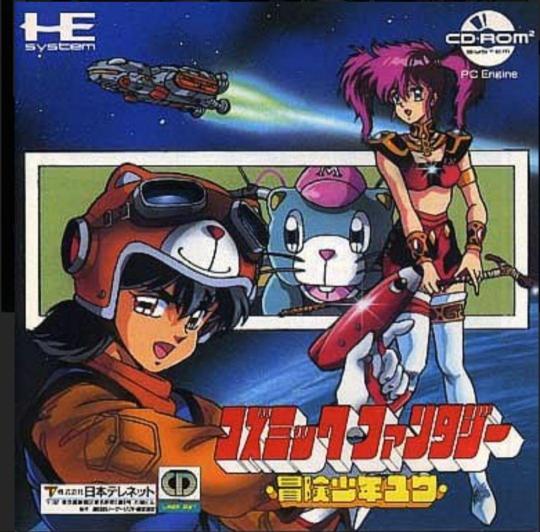#telenet japan
Explore tagged Tumblr posts
Text
Game Spotlight #17: Telenet Music Box (1989)

Acquired Stardust is back with another spotlight! Need something to read to get your mind of recent world events? Been hunting for some new music to listen to? Do you just like learning about cool obscure stuff? Join Ash for a look at one of the most obscure things as of yet featured on the blog in 1989's Telenet Music Box for the PC88!
When thinking about the history of video games, many people of a certain age conjure to mind a beginning marked by the boom that Nintendo's NES (known in Japan as the Famicom) brought to the world. Fewer people will be overly familiar with Atari's platforms or their competitors, and fewer still will likely have heard about the infamous crash of the American video game industry in 1983 beyond being able to regurgitate myths of Howard Scott Warshaw's adaptation of E.T. the Extraterrestrial (1983) bearing supposed direct responsibility.
This pop history approach becoming so normalized to people is frustrating but understandable because it's all around us. Being inundated with countless YouTubers and streamers professing a love for retro games has inadvertently created a narrative that video game history is a straight line through mainstream smash hit consoles and this couldn't be further from the truth - there is a whole world before and around the NES that has gone largely unexplored, particularly in the west, and odds are if you've spent much time on Tumblr you're probably passingly familiar with the subject of this spotlight.
Japan has finally begun to more widely adopt PC gaming (in part due to the phenomenon that is vtubing), with an absolute explosion in market share in the past decade. What you might not know is that Japan actually has a pretty rich history of PC gaming that really blossomed in the 80s and 90s with several hardware manufacturers such as NEC and ASCII offering options that would give the world some early looks at teams and individuals that would come to define the medium going forward.
One such game changer (no pun intended) is Hideo Kojima's Metal Gear debuting in 1987 with its definitive version on MSX PCs and getting an incredible sequel that puts the NES-exclusive Snake's Revenge to shame, and another Kojima title would go on to define the NEC PC98 in popular consciousness with classic sexy adventure Policenauts easily being the most memorable title which would subsequently be ported and updated several times for home consoles such as the Sega Saturn and Sony Playstation.
You may be familiar with the PC98 as screenshots from its many games are popular around Tumblr, most often featuring gloriously mid-late 90s anime girls rendered in stunning pixel art that feels like it exists somewhere out of time as things isolated from their origin as video game screenshots. Having been on Tumblr for over a decade (and the internet at large for even longer), it's my observation that the rediscovery of and appreciation for this retro anime aesthetic (and its later PC98 permutation) was really born here on Tumblr before spreading to other platforms to the point that you've probably seen at least one shot cross your dashboard before. But for this spotlight we're going even further back to the predecessor of the PC98, the PC88.

NEC's PC88 was released in the early 80s and most models featured a whopping 62 KB of RAM (in comparison to the NES's 2 KB) and many later models featured Yamaha sound chips which resulted in games often being visually and aurally significantly more impressive than you would see in home consoles at the time, in some cases lightyears ahead of the NES particularly in regards to music which is a pretty great thing for the sake of this spotlight. The games themselves were also quite varied in content from everything to the kawaii and comedic to erotic and even plenty of horror, with many standout games more accurately reflecting wider Japanese pop culture of the era than what you'd see on the comparatively sterile NES.
This wild west, edgy punk rock software library that goes part and parcel with Japan's nascent PC gaming scene is one of the coolest elements of going back to explore it. You never really know what you're in for, and you might be surprised (or even disgusted) with some of the unique experiences the platform has to offer. Many of these games (and those on the successor PC98) are completely untranslated and Japanese comprehension helps their enjoyment greatly and while often simple enough to enjoy without it that aspect has certainly contributed to their enigma in the west.
There are a lot of factors that have made PC88 and PC98 fandom and emulation not as glamorous as that of home consoles and some of that is due to limitations of the hardware in how it handles scrolling screens, with a noticeable chug as games scroll. Another factor is the compounding nature of its flaws and obscurity meaning emulators themselves are in Japanese and a bit tricky to figure out how to handle, old PCs infamously lacking a lot of user friendly features we take for granted today.
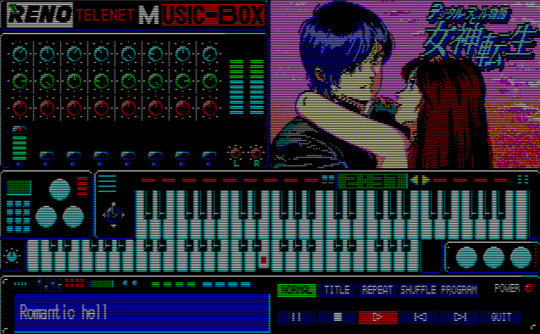
One such surprise is Telenet Music Box, a collection of then-prominent publisher Telenet Japan's biggest games' music. It's barely even a game and more a piece of software fit for a museum, with minimal activity limited to browsing game albums (a total of 13), choosing songs to listen to and creating custom playlists. Each of the 13 game albums is showcased with beautiful splash art and accompanied by a tracker for the keyboard as well as titles for each song and a timer for the length of songs.
Included in the mix is an impressive slate of Telenet Japan's games that showcase the depth and variety of the PC88's library such as Mugen Senshi Valis and even an early alternate manifestation of Shin Megami Tensei as a top-down dungeon crawler reminiscent of Gauntlet. Each of Telenet Music Box's 13 albums have their standout tracks, with some from Luxor and Final Zone being among our favorites.
Telenet Music Box is not a wholly unique concept and several other similar games were released for the platform (as well as the PC98), but it is an exceptionally clever one who's usefulness is perhaps all the more apparent now almost 40 years removed from its release, serving as a fantastic introductory course to a little understood part of video game history. It's a fantastic time capsule and with plenty to offer listeners of its roughly 3 hour runtime well beyond its value as virtual archaeology worth excavating.
Perhaps its most valuable asset is its ability to highlight the true nature of history. History is not a static thing with a start and an end but rather a living breathing thing that touches our everyday lives. Rare is it that anything begins or ends from nothing, with things instead in a constant state of evolution even when rising from the ashes of something else. One particular example of this is in Wolf Team's Final Zone (which features hilarious commentary in its opening scene that I'm not sure how made it past management - do look it up if you can) and Mugen Senshi Valis, the latter of which having been extremely popular in its time, spawning tons of ports and several sequels, with the team behind it eventually morphing into Namco's Tales Studio, responsible for some of the most beloved JRPGs of all time such as Tales of Symphonia and Tales of Vesperia.
While PC88 emulation can be frustrating to work out or find files for, an unforeseen strength of Telenet Music Box's concept of 'game as an album' is how much easier its discoverability is in recent years compared to the more traditional video games it shares a platform with, being far more easy to interface with and experience than the games it itself chronicles, and it can be found on YouTube in its entirety for your listening pleasure alongside plenty of other PC88 soundtracks. I invite you to dip your toes into this little-known scene and hope you come out of it with appreciation for the wide world of games outside what may be familiar to you, and maybe even some new favorite tracks.
A gem hidden among the stones, Telenet Music Box is undoubtedly stardust.
- Ash
#gaming#retro gaming#video games#games writing#written posts#game spotlights#games blogging#long reads#video games writing#essay#writing about games#games journalism#game review#game recommendations#obscure games#telenet#telenet japan#telenet music box#80s#pc88#game music#vgm#chiptune#1980s#heisei era#showa era#showa retro#heisei retro#pixel art
83 notes
·
View notes
Text





Various Artists - Valis: The Fantasm Soldier Collection III Soundtrack | Limited Run Games | 2025 | Black
#various artists#valis: the fantasm soldier#limited run games#vinyl#black vinyl#lp#music#records#record collection#vgm#video game music#soundtrack#valis ii: the fantasm soldier#valis iii#super valis iv#telenet japan#shinobu ogawa#tenpei sato#masahiro kajihara#takaharu umezu#michiko naruke
4 notes
·
View notes
Text

'Telenet Japan - October 1987 Spread'
[MULTI] [JAPAN] [MAGAZINE, SPREAD] [1987]
Games in spread (top left, clockwise):
Luxsor: Nights Over Egypt ルクソール ナイトオーバーエジプト
Shinra Bansho: The Tower of the Espers 神羅万象 -超能力者達の塔-
Final Zone Wolf ファイナルゾーンウルフ
Albatross アルバトロス
Valis: The Fantasm Soldier 夢幻戦士ヴァリス
Digital Devil Story: Megami Tensei デジタル・デビル物語 女神転生
Source: Beep, October 1987 || Internet Archive; taihen
5 notes
·
View notes
Video
tumblr
Gaiares (Telenet Japan / Renovation - Genesis - 1990)
#Now Streaming...#click hyperlink#Gaiares#Telenet Japan#sega#genesis#shmups#shmup#girlboss#girl boss#giant mechs#zplayz
43 notes
·
View notes
Note
You mentioned in a post that Taro Kudo worked at Telenet and I'm curious which games he worked on, given that I wasn't able to find out any info on that (as opposed to fellow Telenet to Square to Lovedelic dev Kenichi Nishi, who I could easily find info on his Telenet work)
To my knowledge, Kudo was never credited in any Telenet production. The source for this information is this interview (Japanese only) where he states that he had worked there between leaving Konami and joining Square. Axelay launched in late 1992 and Super Mario RPG's development began in early 1994. One can estimate that he worked there for an uncertain amount of time during the year 1993. He also says his experience there was mostly a leisurely one, with little actual time spent working, which indicates that he may not have been assigned to any ongoing project. Another possibility is that the project he was working on never made it to market. https://news.denfaminicogamer.jp/interview/171030
5 notes
·
View notes
Text

Retro_G is back with another art cover for the Sega Genesis game "Beast Wrestler". In the story mode the player uses bio-engineered monsters to compete against other "Dragon Warriors" in wrestling competitions. This was a great concept back in it's day. Someone should reinvent this game with today's tech. Like comment and subscribe! THX.
#gaming#retro#youtube#old school#emulators#samsung#tablet#Beast Wrestler#Telenet Japan#Shinbobu Ogawa#tournament#Renovation Products#Bio engineering#cell splicing#genetic manipulation#monster
0 notes
Text

#Valis III#Nintendo Switch#TurboGrafx-16#Mega Drive#Hack and slash#Telenet Japan#Edia Co#Renovation Products#Sega#NEC Corporation#Valis#PC Engine CD-ROM#TurboGrafx-CD#1990
1 note
·
View note
Text
Edia licenses nine classic titles to Shinyuden for release on modern platforms, starting with Final Zone - Gematsu

Edia has licensed nine titles to Shinyuden for release on modern platforms, starting with the release of Final Zone for Switch on January 17, followed shortly by PlayStation 5, Xbox Series, PlayStation 4, Xbox One, and PC via Steam, the companies announced.
The nine titles licensed out to Shinyuden are as follows:
Dino Land
Exile
Exile: Wicked Phenomenon
Final Zone
Gaudi: Barcelona no Kaze
GRIFFIN
Psycho Dream
Sol-Deace
Traysia
According to Edia, it licensed its owned titles to Shinyuden in order to expand its services to western markets where retro games have recently grown in popularity. Edia is also considering plans to sell reprints and remodeled versions of retro game titles from its catalog of 139 former Telenet Japan titles.
#Edia#Shinyuden#Dino Land#Exile game#Exile: Wicked Phenomenon#Final Zone#Gaudi: Barcelona no Kaze#GRIFFIN#Psycho Dream#Sol-Deace#Traysia#Gematsu#Of all these I only know about Psycho Dream.
11 notes
·
View notes
Text
Sega Mega CD - CYBORG 009
Title: CYBORG 009 / サイボーグ009
Developer/Publisher: Riot (Telenet Japan)
Release date: 30 July 1993
Catalogue No.: T-49054
Genre: Scrolling Action


After playing the really poor Interbec (everything they made was poor) Super Famicom version of Cyborg 009 I wasn't really expecting much from this Mega CD version seeing that it comes from Telenet's Riot team. I was so wrong though. While this game does look a bit basic it's actually quite good fun in an old-style run-and-blast type of way. The graphics range from pretty average to some quite impressive-looking areas. The soundtrack is also quite fitting helping to portray the action. The most impressive part of this game though is the story cinemas. All done in real-time using the Mega CD's hardware with original music and voice cast from the TV show. While the animation isn't as good as Game Art's Urusei Yatsura it certainly ranks as some of the best on the Mega CD plainly due to the cinematic feel it has.
If you're after a good old simple yet enjoyable run and blast style game then you can't go wrong with Cyborg 009.


youtube
10 notes
·
View notes
Text


Cosmic Fantasy Bouken Shounen Yuu
©️ Telenet Japan 1990
Image sourced from refuge.tokyo
8 notes
·
View notes
Text
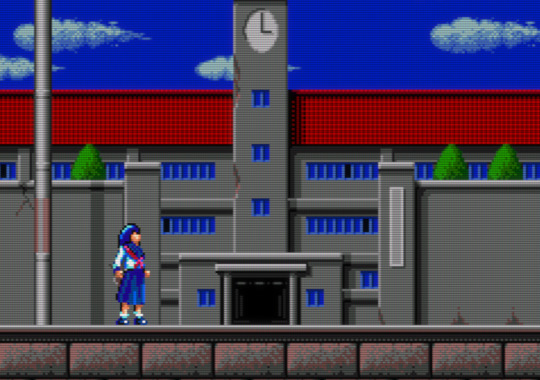
Valis: The Phantasm Soldier Sega Genesis 1991
#gaming#video games#retro gaming#nostalgia#aesthetic#90s#1990s#pixel art#sega#sega genesis#1991#valis#phantasm soldier#telenet#telenet japan#nihon telenet#wolf team#yuko asou#seifuku#school#high school#obscure#obscure games#retro games
23 notes
·
View notes
Text
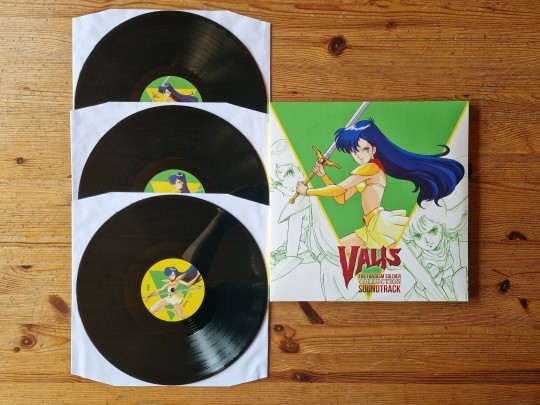


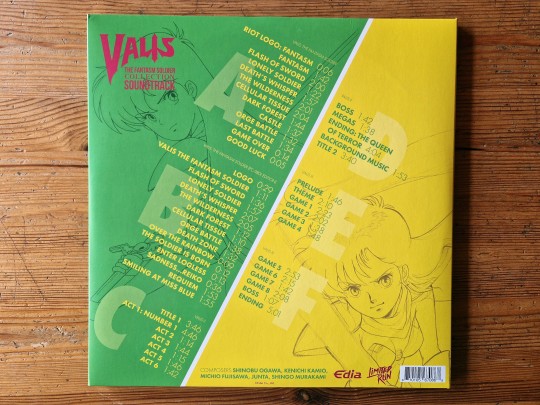
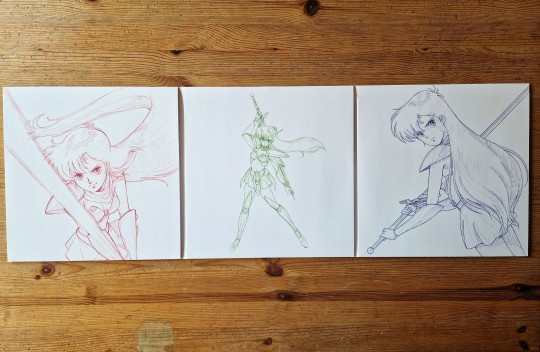
Various Artists - Valis: The Fantasm Soldier Collection Soundtrack | Limited Run Games | 2023 | Black
#junta#kenichi kamio#michio fujisawa#shingo murakami#shinobu ogawa#valis: the fantasm soldier#limited run games#vinyl#black vinyl#lp#music#records#record collection#vgm#video game music#soundtrack#telenet japan#valis
18 notes
·
View notes
Video
youtube
Tricky/トリッキー for MSX made in 1984 by Telenet Japan
0 notes
Photo

Gaiares (Telenet Japan / Renovation - Genesis - 1990)
39 notes
·
View notes
Text
May 31st: Vanpool is dissolved

As per the announcement on their website, Vanpool closed its doors yesterday after over two decades of activity, and on the same day their debut project was first marketed.
The studio was founded ca. 1999 by Taro Kudo, who learned the trade as an employee for Konami, Nippon Telenet and Square, then helped establish Love-de-Lic alongside other vanpoolers, namely artist and character designer Kazuyuki Kurashima. Their first production was the 2000 PS2 cult game, Endnesia, later followed by Coloball 2002. Neither game knew any meaningful success.

Character art for Endnesia, by Kazuyuki Kurahsima (2000).
The path taken by Vanpool was quite distinct from that of Nishi's studio. Though it may have been founded on similar principles, the company survived by pivoting, at times sacrificing inventiveness in favour of more marketable ideas, published by majors.

Covers for Yoga Everywhere and Pilates Everywhere, released in 2007.
Arguably their pièce de résistance, Freshly-Picked Tingle's Rosy Rupeeland also marked the beginning of a very close relationship with Nintendo - so close, in fact, many mistook Vanpool for an external studio of theirs. Though developed under the close supervision of the Japanese giant, seen as it borrowed a peculiar character from the Zelda series, it was built on an entirely original concept proposed by Kudo himself, at least according to some sources (*). The game was not only a small success in Japan, it also fared quite reasonably overseas.
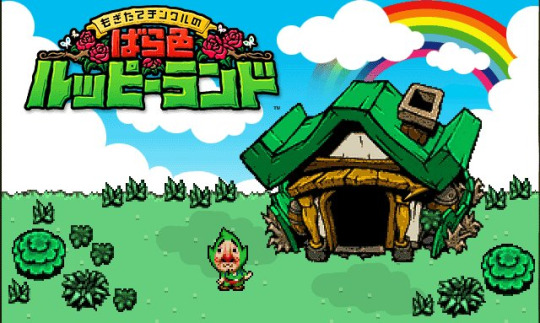
After 2009, Jun Tsuda directed the studio's last original projects, including the Japan-only sequel Irozuki Tingle no Koi no Balloon Trip, and The Rolling Western tower defence trilogy. Kudo took on the role of writer for the 3DS, WiiU and Switch Paper Mario episodes, teaming up with Intelligent Systems. In recent years, Vanpool subsisted almost exclusively through collaborations with HAL Laboratories, creators of several Kirby games, the last of which the acclaimed Switch platformer The Forgotten Land.
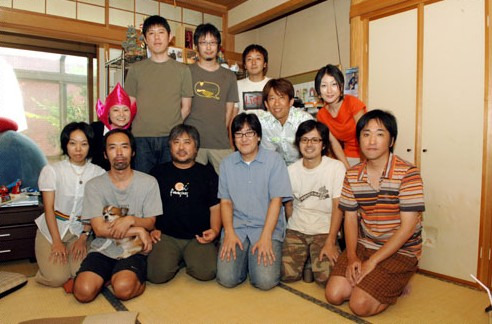
This picture dates from 2006. It was taken when the studio was hard at work producing Rosy Rupeeland. I took the liberty of adding some names for those faces I was able to recognise, having followed most of the staff on social media for several years.
My apologies if failed to identify any of them accurately.

お疲れ様でした。
(*) - The story I heard was that Kudo was highly inspired by a trip or series of trips he made to Bali in the late 90s, from which the concept for Endnesia originated. This also served as a source of inspiration for the whimsical money system in the original Tingle game. While in Indonesia, everything he saw there had a price and price tag, but the final cost was always negotiable, with shopkeepers expecting buyers to drive the number down as a natural order of things. The concept was so alien to him he decided to include and expand upon it in a game design of his own.
#vanpool#japanese game design#taro kudo#kazuyuki kurashima#jun tsuda#nintendo#intelligent systems#hal laboratory#dissolved studio#nintendo DS
11 notes
·
View notes
